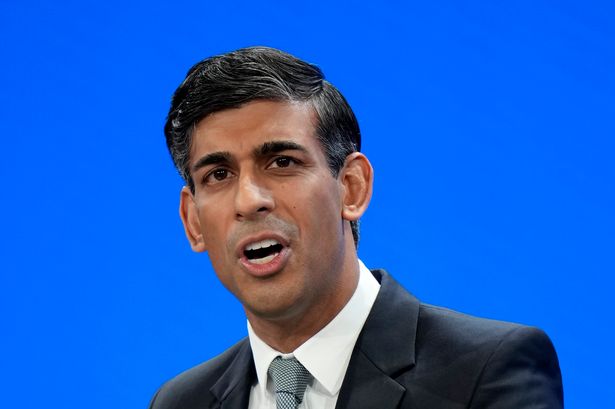Rishi Sunak‘s radical plan to effectively ban kids born after 2009 from smoking sparked massive backlash.
Tory MPs and critics of nanny-state interventions have rounded on the PM, attacking his ‘hideously illiberal’ policy as ‘creeping prohibition’ and questioning whether it will even work.
Is smoking banned in UK?
Announcing he would seek to phase out cigarettes to great fanfare at the Tory party conference in Manchester, Mr Sunak argued it was the ‘right thing to do for our kids’.
And on Wednesday, he defended the ‘biggest public health intervention in a generation’ in his bid to sway his vocal nay-sayers, including former PM Liz Truss and ex-UKIP leader Nigel Farage.
If Mr Sunak’s proposed law goes ahead, the age someone can legally buy tobacco will raise from 18 by one year annually.
How old do you have to be to buy cigarettes in England?
This will mean children aged 14 and under will never be legally able to buy them and, by 2040, only Brits over the age of 32 will be able to purchase cigarettes in shops.
Charities and health experts immediately welcomed Mr Sunak’s plans, saying it will save tens of thousands of lives from preventable diseases linked to smoking such as cancer.
The Government itself wielded statistics claiming that smoking costs the economy £17billion a year through lost productivity and knock-on effects to the NHS.
READ ALSO: Pupils ‘foamed at the mouth’ after smoking cannabis vape to calm themselves ahead of an exam
But smokers’ rights group Forest disputes the figure, saying it is based on ‘nothing more than estimates and calculations’.
Tobacco duties will raise £10.4billion for the Treasury this year, officials estimate. Yet that amount will gradually decrease under the PM’s New Zealand-style plan to phase out legal sales.

The UK’s biggest tobacco firms warned the plan ‘threatens significant unintended consequences’. Almost £1bn was wiped off their shares as a result of the announcement yesterday.
A spokesman for Imperial Brands, which owns Gauloises and Rizla, said: ‘We understand the Government’s desire for new tobacco control measures, because of the health risks associated with smoking.
‘But, like any prohibition, the proposal to ban the legal sale of cigarettes over time threatens significant unintended consequences.’
The PM’s controversial policy is similar to one enacted in New Zealand, which became law late last year.
This law effectively means people living there who are born after 2009 will never legally be able to purchase cigarettes.
It as yet unclear what impact the policy is having on smoking cessation, though experts suggest it should work.











